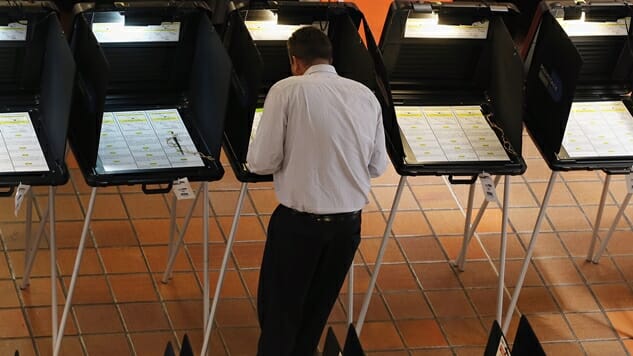Introducing Endless Mode: A New Games & Anime Site from Paste
According to a new Senate report, the Russian hacking in the 2016 election was targeted at all 50 states in the U.S., per ThinkProgress.
The newly released bipartisan report from the Senate Intelligence Committee confirms previous comments from the Department of Homeland Security stating that Russia not only attempted to hack into the previously mentioned 21 states, but actually targeted all 50 states. However, the report found no evidence that Russia successfully altered or fixed the 2016 election.
Otherwise, the report takes note of miscommunication between Homeland Security and the FBI, who knew of the Russian threat, and the state and local level election officials, who dealt with all election materials, websites and databases. According to the report, a lack of communication only helped Russia.
“In 2016, the U.S. was unprepared at all levels of government for a concerted attack from a determined foreign adversary on our election infrastructure,” Sen. Richard Burr, the committee’s chair, said via ThinkProgress.
The findings come just one day after former special counsel Robert Mueller sat before Congress on Wednesday. Though nothing remotely new was said or learned at Mueller’s latest testimony, the former special counsel stated how Russia was working to hack into U.S. elections at this very moment.
“It wasn’t a single attempt,” Mueller said before Congress, per ThinkProgress. “They’re doing it as we sit here. And they expect to do it during the next campaign.”
Within the report, the Senate recommended updating of outdated voting machines, creating clearer communication between federal and state/local counterparts, as well as creating greater security for state and local election systems.
Democrats did propose two election security bills, but both were blocked by Sen. Cindy Hyde-Smith (R-MI). One of the bills proposed required campaign reporting of foreign offers of support, and the other proposed the securing of personal electronic devices of senators and their staff by the Senate Sergeant-at-Arms. Hype-Smith didn’t explain her reasoning for blocking the bills, but it’s not hard to figure out who’s behind it.
“[McConnell] has a long history of opposing election reform,” Oregon Sen. Ron Wyden said earlier this year per ThinkProgress. “And he’s got people in his caucus who’ll do a lot of the heavy lifting for him.”
Virginia Sen. Mark Warner is staying optimistic, and hopes the new findings will breach party lines and help federal officials work closer with state and local officials.
“There’s still much more we can and must do to protect our elections,” Warner said per ThinkProgress. “I hope the bipartisan findings and recommendations outlined in this report will underscore to the White House and all of our colleagues, regardless of political party, that this threat remains urgent, and we have a responsibility to defend our democracy against it.”
